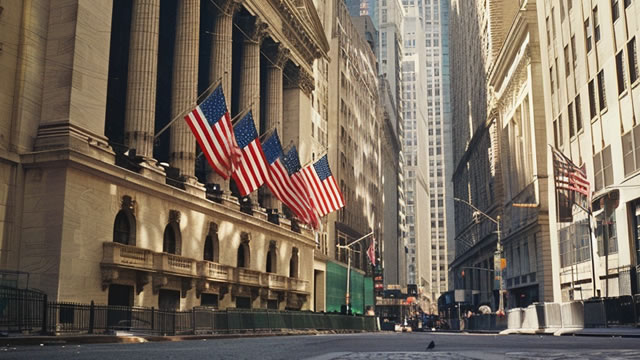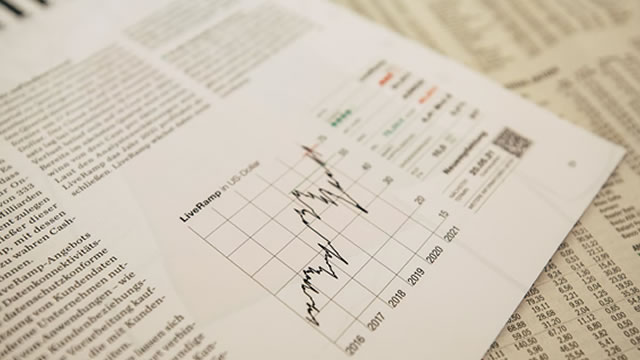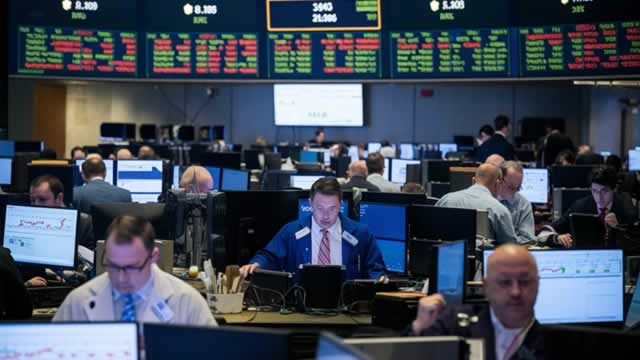Stock Market Update: Dow Jones Industrial Average sees Significant Swings
The Dow Jones Industrial Average (DJIA) experienced a notable rise of over 500 points earlier in the trading session, representing a substantial increase of around 1.5%. This upward trend came after a period of instability in the market, which saw the index fluctuate between gains and losses.
Early Morning Surge
The surge in the Dow Jones Industrial Average was driven by a combination of factors, including positive economic data releases and optimistic earnings reports from several key companies. The services sector in the US showed continued expansion, as indicated by the ISM Non-Manufacturing PMI, which came in at 59.1 for February, exceeding expectations.
Retracement
Despite the early morning surge, the Dow Jones Industrial Average later retraced some of its gains, with the index falling back below the 30,000 mark. This retreat can be attributed to profit-taking among investors, as well as concerns over rising inflation and interest rates.
Impact on Individuals
For individual investors, the volatility in the stock market can lead to both opportunities and risks. Those who have a long-term investment horizon and a diversified portfolio may view this market fluctuation as a normal part of the investing process. However, for those with a shorter-term outlook or concentrated positions, the Dow Jones Industrial Average’s swings can be unsettling.
- Individual investors can consider rebalancing their portfolios to maintain their desired asset allocation.
- Those with cash on hand may view market volatility as an opportunity to invest at potentially lower prices.
Impact on the World
The Dow Jones Industrial Average’s swings can have far-reaching implications for the global economy. For instance, a sustained rise in the index can lead to increased consumer and business confidence, which, in turn, can boost economic growth. Conversely, a significant market downturn can lead to reduced consumer spending, lower business investment, and even economic contraction.
- Central banks, such as the Federal Reserve, may adjust their monetary policy in response to market volatility, which can impact global interest rates and currency values.
- Governments may also react to market swings by implementing fiscal policies aimed at stabilizing the economy or mitigating the impact on their citizens.
Conclusion
The Dow Jones Industrial Average’s significant swings serve as a reminder of the inherent volatility in the stock market. While individual investors can take steps to manage their risk and capitalize on opportunities, the broader implications for the global economy can be more complex. As always, it is essential to stay informed about market developments and maintain a well-diversified investment portfolio.




